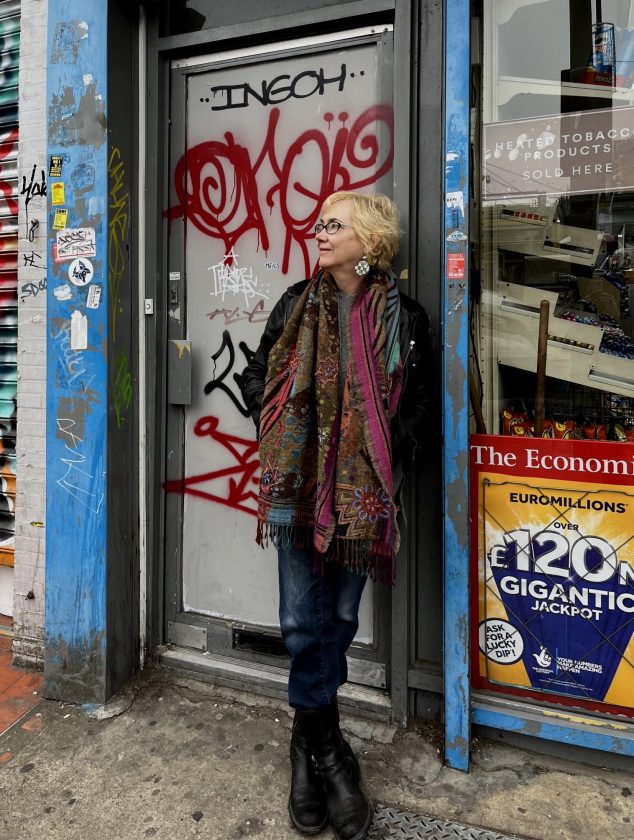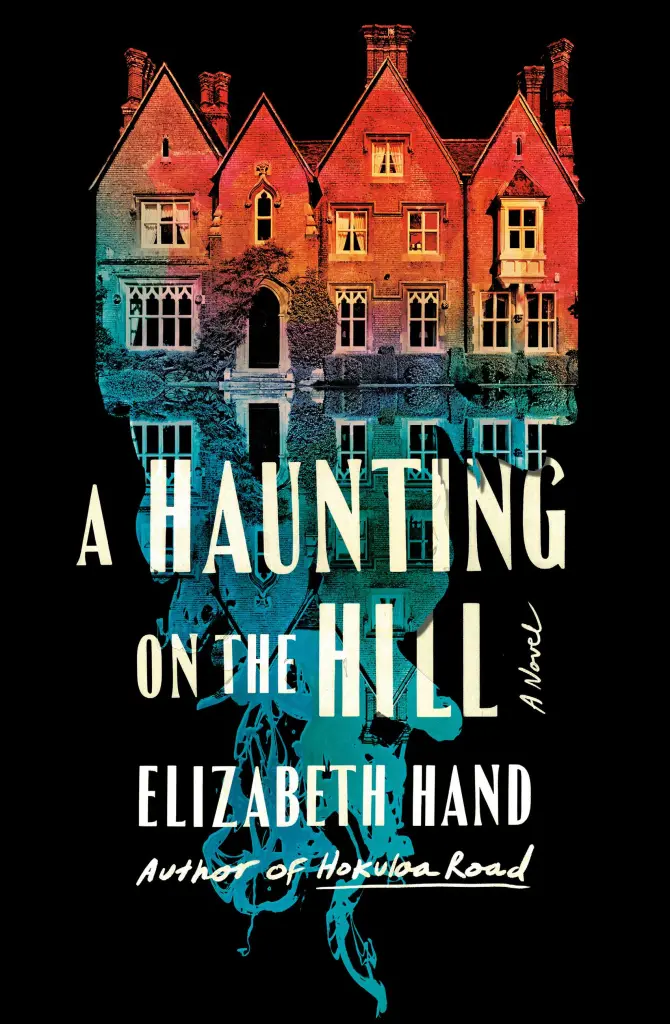When it was first published in 1959, Shirley Jackson’s “The Haunting of Hill House” became an instant classic, adored by critics and readers alike. Stephen King later called it one of the most important horror novels of the 20th century. The basic plot — four people investigate paranormal happenings at an eerie old mansion — has become so ingrained in American pop culture that you likely know the story, even if you haven’t read the book.
Jackson died in 1965, just six years after “The Haunting of Hill House” was published. While the book has spawned a number of adaptations, including two movies, two plays, one radio program, and one Netflix series, no one has ever been authorized to write a follow-up story.
Until now.
Elizabeth Hand, bestselling author and a member of USM’s Stonecoast MFA faculty, has continued Jackson’s universe with “A Haunting on the Hill.”
“It’s a big thrill,” said Hand, who read her first Jackson short story, “The Lottery,” in fourth grade and still keeps Jackson’s story collections on her bookshelf. “I think it would be very hard to find a writer of my generation or the generation or two below me who was not deeply influenced by her — certainly people who write the kind of fiction I do, sort of dark fiction or magic realist or supernatural fiction, fiction that has any kind of a tinge of the fantastic. Everybody looks at Shirley Jackson as a literary godmother.”

Jackson’s estate first approached Hand several years ago and asked if she would be interested in continuing the Hill House saga. Hand was already working on another book at the time, but she didn’t hesitate to say yes.
She put together a proposed outline and some sample chapters. The project seemed to move ahead, then stalled. Hand finished her own book, moved on to another. The Hill House project was put on a back burner.
Then, around 2020, an agent for Jackson’s estate got back in touch about a different project. As part of that discussion, Hand mentioned that she’d still be very interested in writing about Hill House.
“I came up with a completely different idea from the original one,” Hand said. “Whatever I had come up with before, I thought ‘Eh, this is no longer interesting to me.’”
With the pandemic still raging, Hand talked plot over Zoom with the agent and Jackson’s oldest son.
“I said, ‘OK, why don’t we try this and have a small group of actors who are renting out Hill House and they’re adapting a play and hijinks ensue,’” Hand said.
That remained the basic gist of the book, though “A Haunting on the Hill” would grow vastly more complex — involving a struggling playwright and her girlfriend, a sound designer and aging actress, secret affairs, time warps, apparitions, otherworldly hares, and increasingly terrifying events. The book is carefully not a sequel but a continuation of the universe.
“From the outset I said this is not going to be a Shirley Jackson pastiche. This is going to be an Elizabeth Hand novel and it’s going to be set at Hill House,” Hand said. “But it’s really important to me to understand and maintain the integrity of Hill House as a literary space. I’d read the book a number of times over the years and I re-read it again more than once — I have a dog eared copy that has highlighting in it — to just really make sure I could understand and inhabit the architecture of the place she created. And it was a very dark place. I felt that she really created a very dark place for readers to visit.”
“A Haunting on the Hill” was released in early October. Critics have lauded the book and praised Hand for bringing her own style to the infamous Hill House.

“A lesser writer might’ve paid more overt homage to ‘The Haunting of Hill House,’ or tried to imitate Jackson’s singular prose style. Hand, wisely, does no such thing, opting for resonance over replication,” wrote Emily C. Hughes for the New York Times. “In a landscape of soulless franchises geared toward quick, shallow hits of fan service, she has the maturity and talent to deliver the follow-up that Jackson’s novel deserves (even if it didn’t necessarily need one).”
NPR’s Gabino Iglesias called it “a novel that brilliantly picks up on some of the things Jackson played around with and pushes them to center stage.”
“‘A Haunting on the Hill’ is a class in atmosphere,” Iglesias wrote. “Unlike haunted house narratives that introduce readers to a new place, this novel presented Hand with a unique challenge: delivering creepy, surprising scenes to readers who had high expectations and most of which were familiar with what Hill House could do. Luckily, she delivers.”
Hand, who is on a book tour for “A Haunting on the Hill,” recognizes that some Jackson fans may not be thrilled with someone else playing in her universe. “The Haunting of Hill House,” after all, stood alone for 64 years.
“They may look at me like, ‘Oh my God, this is terrible. How could you even do this?’ But for the people who take it on their own terms, I hope that they’ll enjoy it in the way that you enjoy a dark, spooky book. I hope it’s a creepy book. It’s meant to be a scary book.”

